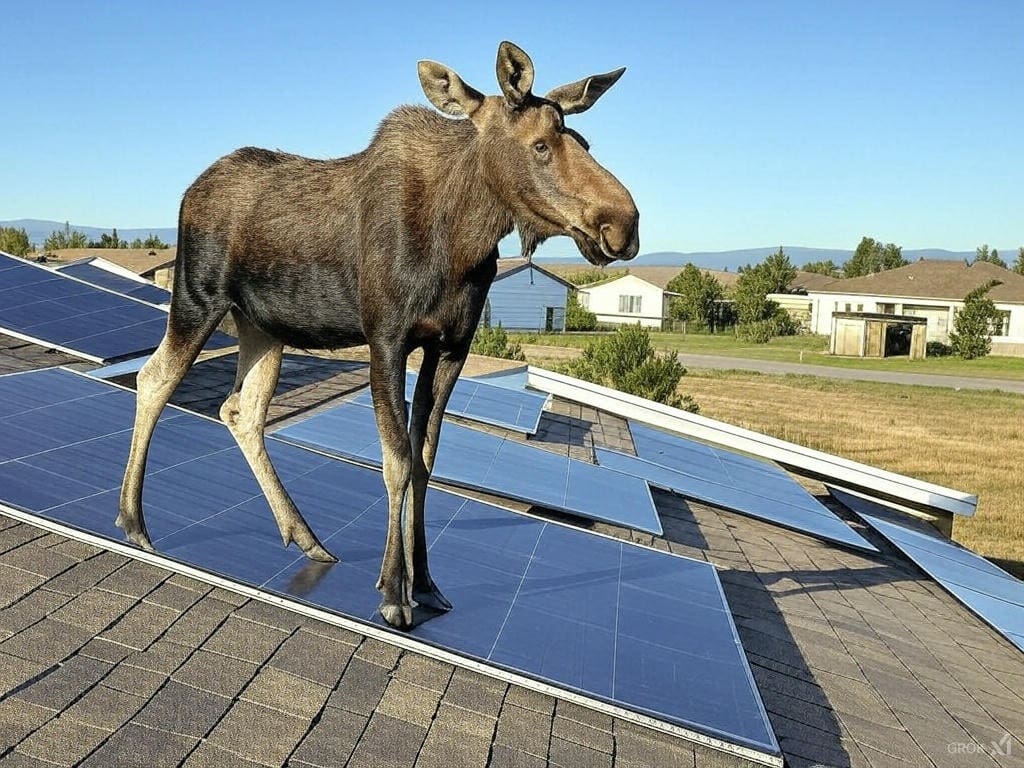Why Some Homes Get Turned Down For Solar – And How We Can Help – Part 1
So Your Home Didn’t Get Approved for Solar Now What?
What Northwest Hills Solar has discovered is that many smaller solar companies tell homeowners their home didn’t qualify, not because it truly can’t go solar, but because it simply wasn’t a profitable deal for the company. The truth is, another company might have approved you, and at Northwest Hills Solar, we specialize in getting homes approved.
When homeowners hear, “Sorry, your home doesn’t t qualify for solar” they often assume they’re out of options. But the reality is, not all solar companies are created equal. Some companies only approve homes that are the easiest and most profitable to install solar on, leaving others behind, even when they could qualify with the right approach.
At Northwest Hills Solar, we take a different approach. We work to get homes approved. Whether it means assisting with roof replacements, electrical upgrades, or navigating tricky shading issues, we don’t t walk away from a challenge.
Common Reasons Homes Are Denied for Solar
If you’ve been told your home doesn’t t qualify for solar, the first step is to understand why. Here are some of the most common reasons homeowners get denied:
1. Roof Condition

Many solar companies will deny homes with roof-related issues, but at Northwest Hills Solar, we help homeowners find solutions.
Old Roofs: If your roof is nearing the end of its lifespan, some companies won’t t approve solar. We assist homeowners with roof replacement options to make solar possible.
Damaged Roofs: If your roof has missing shingles, water damage, or structural concerns, it may need repairs before solar installation. We work with roofing specialists to address these issues.
Material Compatibility: Some materials, like slate or clay tile, can be trickier for solar installations. While some companies avoid them altogether, we evaluate options to determine if a safe and effective installation is possible.
2. Too Much Shade
Shade from trees, buildings, or other obstructions can impact solar panel efficiency, but that doesn’t always mean your home can’t go solar.
Is All Shade Bad?: Some companies reject homes based on shade without fully analyzing whether solar is still viable. With advancements in solar panel technology, partial shade doesn’t always mean disqualification.
What About Partial Shade?: If only certain parts of the roof are shaded, we access whether a different panel configuration or micro-inverters can maximize production.
Tree Trimming Solutions: Sometimes, trimming or removing a few branches can significantly improve solar viability. We help homeowners explore these options.

3. Insufficient Roof Space or Poor Orientation
Some roofs may not have enough usable space for a solar system, but alternative solutions may still exist.
Too Small or Complex Roofs: Homes with multiple dormers, skylights, or chimneys may have limited space for panels. However, alternative layouts or high-efficiency panels can sometimes make solar viable.
Wrong Orientation: South-facing roofs generate the most energy, but east- and west-facing roofs can still be effective. We assess if your home can still benefit from solar, even with a non-ideal orientation.
4. Electrical Panel Issues
Older electrical systems may not be able to handle the added load of a solar system.
Too Old: Some older panels may not meet current electrical codes or be capable of supporting solar connections.
Unsafe or Outdated: Certain brands of electrical panels have known safety concerns, making them ineligible for solar without an upgrade. At Northwest Hills Solar, we help homeowners upgrade their panels to solar-ready systems.
5. HOA Restrictions or Local Regulations
Homeowners associations (HOAs) and local zoning laws sometimes create obstacles for solar installation. While these regulations vary, we specialize in navigating the permitting and approval process to help homeowners move forward with solar when possible.
6. You Are a Renter or Live in a Multi-Unit Building
If you don’t own your home, getting solar can be more complicated. Renters typically need approval from their landlord, and multi-unit buildings may have shared electrical systems that make individual solar installations difficult. However, some options, such as community solar programs, may still be available.
What’s s Next?
Being denied for solar doesn’t t have to be the end of the conversation. If another company has told you no, let Northwest Hills Solar take a second look, we specialize in getting approvals where others won’t t.
This special eight-part series will dive into additional ways homeowners can save on their electricity bills, whether they have solar or not. For those who were previously told they couldn’t qualify for solar, there’s s still a chance with Northwest Hills Solar and these energy-saving tips can help lower Eversource bills even further.
